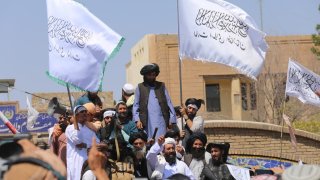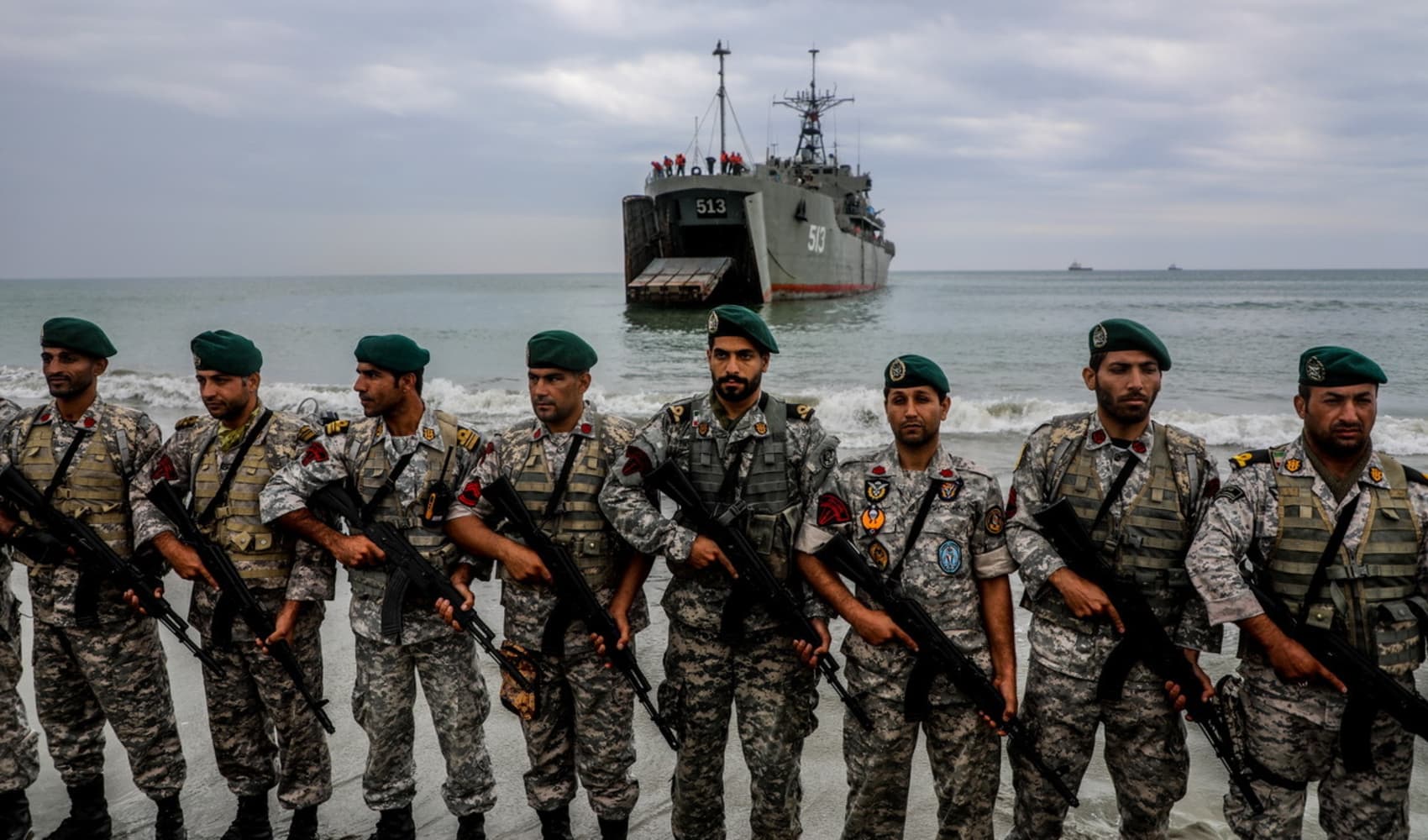
- The Indian foreign ministry said that India's ambassador to Qatar, Deepak Mittal, met with the head of the Taliban's political office, Sher Mohammad Abbas Stanikzai, in Doha.
- It was the first time an Indian diplomat formally met the group and marked a drastically different approach from New Delhi compared to when the Taliban were last in power in the 1990s.
- Mittal and Stanikzai discussed the safety, security and early return of Indian nationals who are stranded in Afghanistan as well as New Delhi's concerns around Afghanistan being used as a base for terrorism.
- "There is a practical necessity of engaging with the Taliban given that it would be one of the most — if not the most — important political stakeholder in Afghanistan," said Harsh Pant at the Observer Research Foundation.
India announced its first formal diplomatic meeting with the Taliban on Tuesday — their first official talks since the group seized power in Afghanistan as the U.S. withdrew its forces from there.
The Indian foreign ministry said India's ambassador to Qatar, Deepak Mittal, met with the head of the Taliban's political office, Sher Mohammad Abbas Stanikzai. The Taliban had requested the meeting, which took place at the Indian embassy in Doha, according to the ministry.
Mittal and Stanikzai discussed the safety, security and early return of Indian nationals who are stranded in Afghanistan as well as travel prospects for Afghan minorities who want to visit India, the Ministry of External Affairs said.
Feeling out of the loop? We'll catch you up on the Chicago news you need to know. Sign up for the weekly Chicago Catch-Up newsletter here.
The Indian ambassador also raised New Delhi's concerns around Afghanistan being used as a base for terrorism.
"The Taliban Representative assured the Ambassador that these issues would be positively addressed," the foreign ministry said.
Days before Tuesday's meeting, Indian media reported that Stanikzai said the Taliban wanted to continue Afghanistan's political, economic and cultural ties with India. It was reportedly the first time a member of the Taliban leadership spoke about the future of India-Afghanistan relations since the group captured Kabul.
Money Report
The Taliban's return to power would likely impact Afghanistan's neighbors, amid rising concerns of regional instability, refugee inflows and the prospect of Afghanistan becoming a haven for terrorist activities again.
New Delhi did not have diplomatic relations with the Taliban when they were last in power in the 1990s, in part because of the militant group's ties to Pakistan.
But India had forged close ties with the U.S.-backed civilian government in Kabul over the last two decades and provided Afghanistan with development assistance. Reports said that India has invested $3 billion in multiple infrastructure and trade projects and has undertaken over 400 projects in Afghanistan.
Analysts say India's commitments and the recent shift in power has left New Delhi in a tough strategic state.
'Practical necessity'
India's meeting with the Taliban was a "necessity" that was in some ways dictated by the evolving political realities in Afghanistan, said Harsh Pant, head of the strategic studies program at the Observer Research Foundation in New Delhi.
"There is a practical necessity of engaging with the Taliban given that it would be one of the most — if not the most — important political stakeholder in Afghanistan," Pant told CNBC. "Outreach at lower levels had already begun but this is the first official, explicitly-stated Indian outreach to the Taliban."
India reportedly made efforts in June to engage with the Taliban as the U.S. withdrawal deadline loomed. China has also stepped up its diplomatic efforts to engage with the Islamist group.
"If eventually the Taliban succeed in bringing together an inclusive government, with various stakeholders, then there is no reason why India would not move forward with a new momentum in its engagement," Pant said.
He said the issue of recognizing the Taliban as the legitimate power in control of Afghanistan won't emerge anytime soon.
"For the foreseeable future, it would largely be an engagement to assess where Taliban might be going with their agenda," Pant said.
"I think most of the countries would be waiting and watching as to what the Taliban actually do on the ground."






